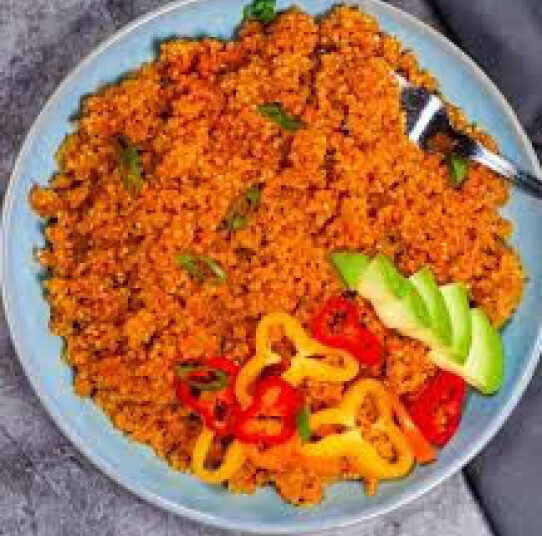Trauma leaves marks, not just on our minds but often within our bodies. It alters how we process emotions, respond to stress, and even how we nourish ourselves. Healing trauma isn’t just about therapy or self-help books—it can also begin on our plates. The food we consume can nurture not only our bodies but also our mental and emotional well-being, helping us rebuild resilience from the inside out.
The Connection Between Food And Emotional Healing
When faced with stress or trauma, our bodies often experience imbalances. Stress hormones like cortisol increase, while serotonin (the “feel-good” neurotransmitter) decreases. This can lead to fatigue, anxiety, or even depression.
Healthy foods, particularly those rich in vitamins, minerals, antioxidants, and omega-3 fatty acids, can help counter these effects. They provide essential nutrients for brain health, stabilize mood, and support the gut-brain connection—a key player in emotional well-being.
The gut, often called the “second brain,” communicates directly with the brain through the vagus nerve. A healthy gut microbiome produces neurotransmitters like serotonin, which affect mood. By eating foods that nourish the gut, we’re also supporting mental health and emotional stability.
Foods To Heal Trauma from Within
Leafy Greens: Spinach, ugu (pumpkin leaves), and kale are rich in magnesium, which helps reduce stress and anxiety.
Healthy Fats: Sources like avocados, nuts, seeds, and palm oil are essential for brain health. Omega-3 fatty acids in particular can reduce inflammation and improve mood.
Protein-Rich Foods: Beans, fish, and chicken provide amino acids like tryptophan, which the body converts into serotonin.
Fermented Foods: Locally made fermented foods like ogi (fermented maize) are excellent for gut health, boosting beneficial bacteria and promoting emotional balance.
Whole Grains: Foods like millet, ofada rice, and guinea corn help maintain stable blood sugar levels, preventing mood swings.
Colorful Vegetables and Fruits: Tomatoes, carrots, oranges, and mangoes are rich in antioxidants, which reduce inflammation in the brain and body.
A Simple Recipe For Healing: Nigerian Jollof Quinoa
This recipe reimagines the beloved Nigerian jollof rice with quinoa, superfood rich in protein, fiber, and essential amino acids that promote gut health, stabilize blood sugar levels, and boost brain function. It’s a comforting, flavorful dish designed to heal from the inside out.The quinoa can be substituted for Acha as they have the same health benefits
Ingredients
1 cup quinoa, or Acha rinsed
2 medium-sized fresh tomatoes, blended
1 red bell pepper, blended
1 medium onion, finely chopped
2 tablespoons tomato paste
2 cloves garlic, minced
1 small piece of ginger, grated
1 teaspoon thyme
1 teaspoon curry powder
1 teaspoon paprika
1 cup chicken or vegetable stock
1/4 cup cooked beans (optional, for added protein)
1/2 cup shredded grilled chicken or fish (optional, for a complete meal)
2 tablespoons olive oil or coconut oil
Salt and pepper to taste
Instructions
1.In a dry pan, lightly toast the quinoa over medium heat for 2-3 minutes until fragrant. Set aside.
2.Heat olive or coconut oil in a pot. Add onions, garlic, and ginger. Sauté until fragrant.
3.Add the blended tomatoes, bell pepper, and tomato paste to the pot. Stir and cook for 10 minutes until the sauce thickens.
4.Add thyme, curry powder, paprika, salt, and pepper. Stir well to combine.
5. Add the toasted quinoa or acha to the sauce. Pour in the chicken or vegetable stock and stir. Cover and cook on low heat for 15-20 minutes or until the quinoa or acha absorbs the liquid and becomes tender.
6. If using, mix in cooked beans and shredded chicken or fish during the last 5 minutes of cooking.
7. Fluff the quinoa with a fork and serve hot. Enjoy it on its own or with a side of fresh cucumber and carrot salad for added crunch.
Why This Dish Heals
Quinoa: A nutrient powerhouse that stabilizes blood sugar levels and provides essential amino acids to support brain health.
Tomatoes and Bell Peppers: Rich in antioxidants like lycopene, which reduce inflammation and support a healthy brain-gut connection.
Garlic and Ginger: Natural anti-inflammatory agents that soothe the body and boost immunity.
Beans and Chicken/Fish: High-quality protein to repair cells and promote serotonin production, helping to stabilize mood.
Remember
Eating with intention choosing foods that heal and nourish can be a transformative act. While healthy eating alone cannot erase trauma, it can provide a foundation for emotional resilience. Alongside therapy, mindfulness, and supportive relationships, it becomes a vital tool in your healing journey. So embrace the power of food and nourish not just your body, but your soul.
Happy Eating!





